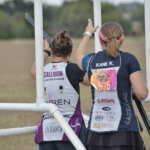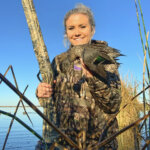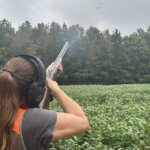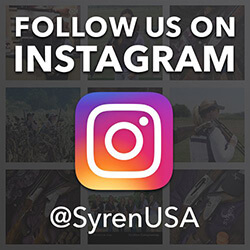In the final installment of our three-part Syren Savvy series, we catch up with former collegiate competitor and Syren Ambassador Abby Chambers. A proud alumnus of Emmanuel College’s shotgun team and a standout in the world of sporting clays, Abby reflects on her journey from her early days on the range to the peak of her college career – and now, life after graduation. With national titles, regional championships and years of competitive experience under her belt, Abby offers an honest and insightful look at the transition from student-athlete to young professional. For those wondering what comes after college competition, Abby’s story is one of growth, passion, and a lifelong connection to the shooting sports.
Getting Started – The Early Stage
Let’s go back to the beginning. Can you share how you were first introduced to the shotgun sports and what hooked you in those early days?
Of course! I was first introduced to the shotgun sports following a knee injury! My dad brought me out to shoot at our local gun club, 17 South. From there, I joined my high school team. In the spring we started an SCTP Club Team at the gun club, and it has been non-stop ever since.
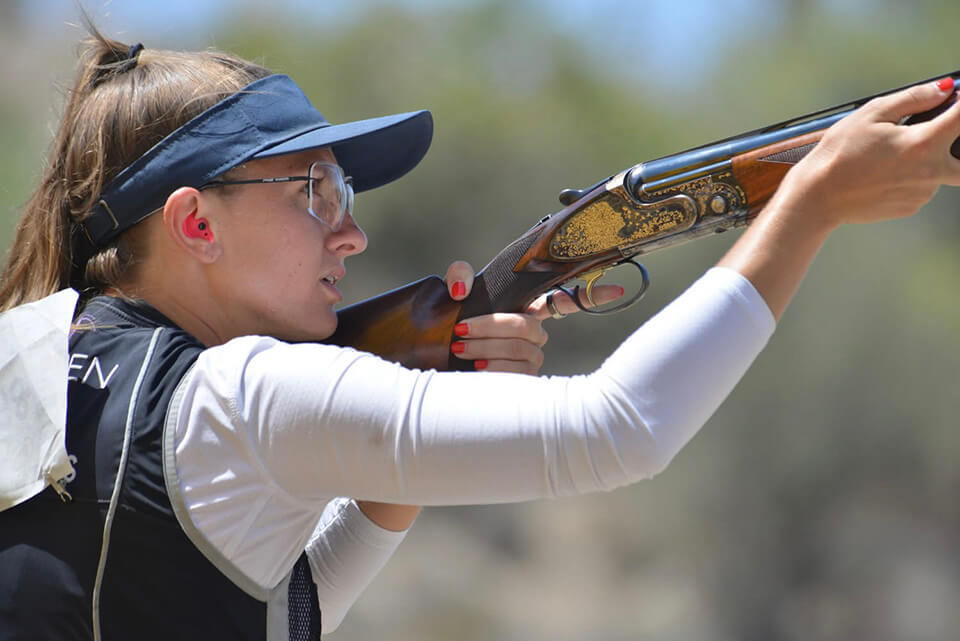
Everyone has a turning point. Was there a specific moment or experience that made you realize you wanted to pursue this competitively and not just as a hobby?
I started off the bat wanting to pursue shooting competitively, but I didn’t know until much later that this was what I wanted my career to look like. I’m very competitive with just about everything I do, so shooting becoming a competitive sport for me was no surprise. I was shooting skeet at the SCTP Southeast Regionals in 2021, and just happened to have been squadded with a young girl named Ella Guidotti. During those short two hours, we quickly became friends. Even though I was a couple years older, she gave me so many reasons as to why I wanted to continue in this sport as long as God would allow me. She showed me the power in not just having dreams, but also chasing them. That’s my goal with my shooting career – to empower as many women and girls as I can.
Equipment is so personal. As a female athlete, what role did gun fit and gear play in your growth as a competitive shooter?
Gun fit quickly became something incredibly important in my shooting. Being that I was a bit small when I started shooting, I needed a gun designed for women/girls like me. That’s when I was first introduced to Syren back in 2019. To this day, I have never shot another gun other than ones made by Syren. Gear was also super important. Having a vest that fits properly, glasses to correct vision problems, softer shooting shells … really everything I compete with helps adds to the overall game. I stand by the fact that if I wasn’t introduced to a Syren, I would’ve quit years ago with how bad my shoulder hurt.
Life as a Collegiate Shooter
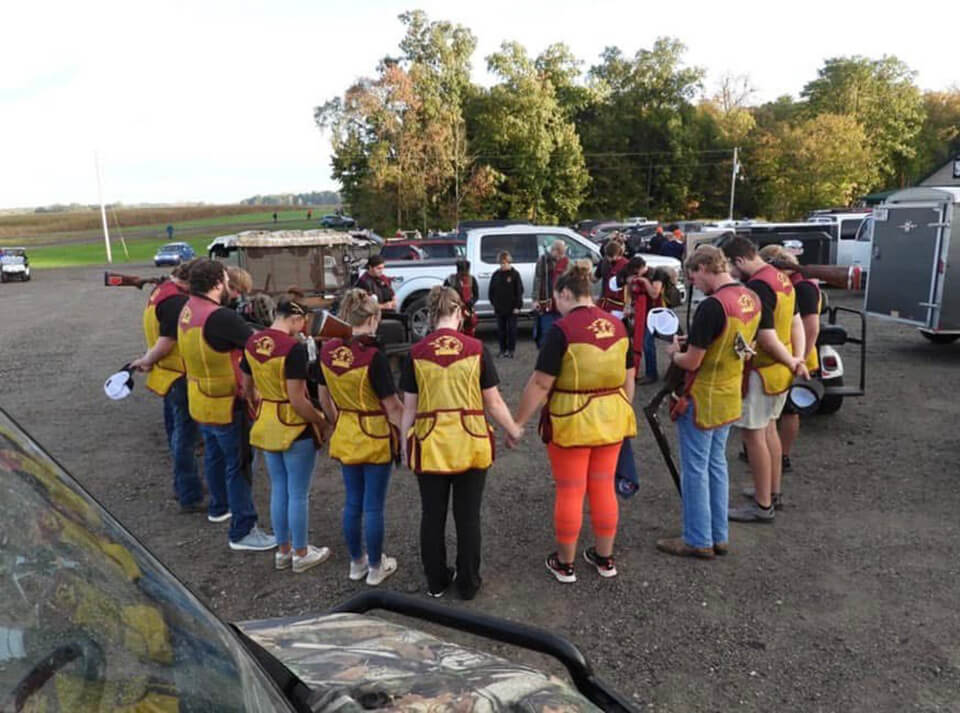
You shot competitively at Emanuel College. What was that transition like from high school/youth programs into college-level competition? Was there a recruiting process?
There wasn’t too much of a recruiting process necessarily. I went to tour other colleges and shoot with their programs, but nothing felt like home the way Emmanuel did. The transition process was interesting. Being that there were so many life changes that happened during that time period, and not just within shooting, having a gun in my hands really became an outlet, as it still is now. The competition level is higher, the expectation is higher – almost everything goes to a new level as you transition from high school to college. Just like college to NSCA. Thankfully, I had a great support system in my teammates, so none of us were doing it or feeling it alone. I firmly believe that the sweet girls I met through the team were the reason we all made it through the first semester.
Balancing school and sports isn’t easy. How did you manage the demands of training, traveling and academics during your time as a student-athlete?
This is a good one! Really trial and error. I think it varies from person to person, depending on how competitive they are. There was a lot I missed out on because I did take the sport so seriously. Academically, my professors were extremely accommodating and helped me with almost everything. Once I moved to online college through SNHU, it made it even easier to travel and train. At the end of the day, education came first for me, so if it meant studying in airports and hotels, then that’s what I did. With all of that said, you can do anything you put your mind to, even if it’s a bit harder than you thought it would be!
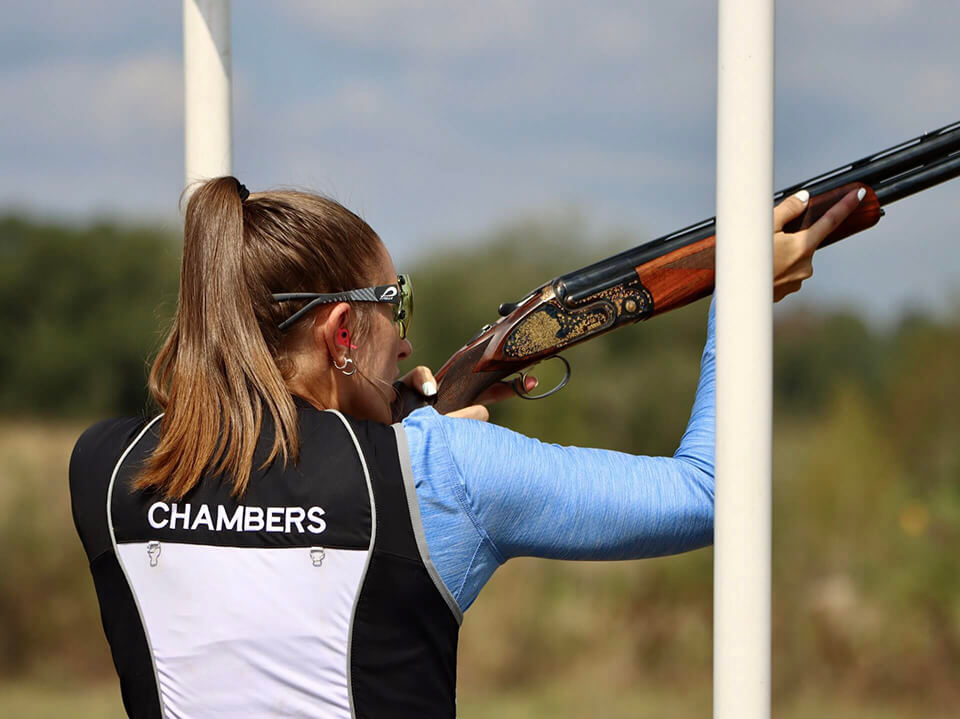
College teams often become family. Can you share a memorable story or experience with your teammates that still sticks with you today?
There’s so many that I still carry with me!! To be honest, every person who is in my life today was a shooter or currently shoots, even all of my close girlfriends! I think the memory that sticks out to me most is one that wasn’t even having to do with shooting! Being that the Emmanuel Team was a pretty small group, almost everyone in my incoming class knew each other. The summer before we left for Emmanuel, we all competed at SCTP Nationals in Ohio. One of the nights we were up there, we all went to TopGolf. I think it would take 3 hours to tell every detail, but needless to say – we had one of the funniest nights of my life! I don’t know that there’s a memory from college that doesn’t put a smile on my face. Without shooting, I never would have met all of my incredible best friends, my partner and truly the best people from all over the world.
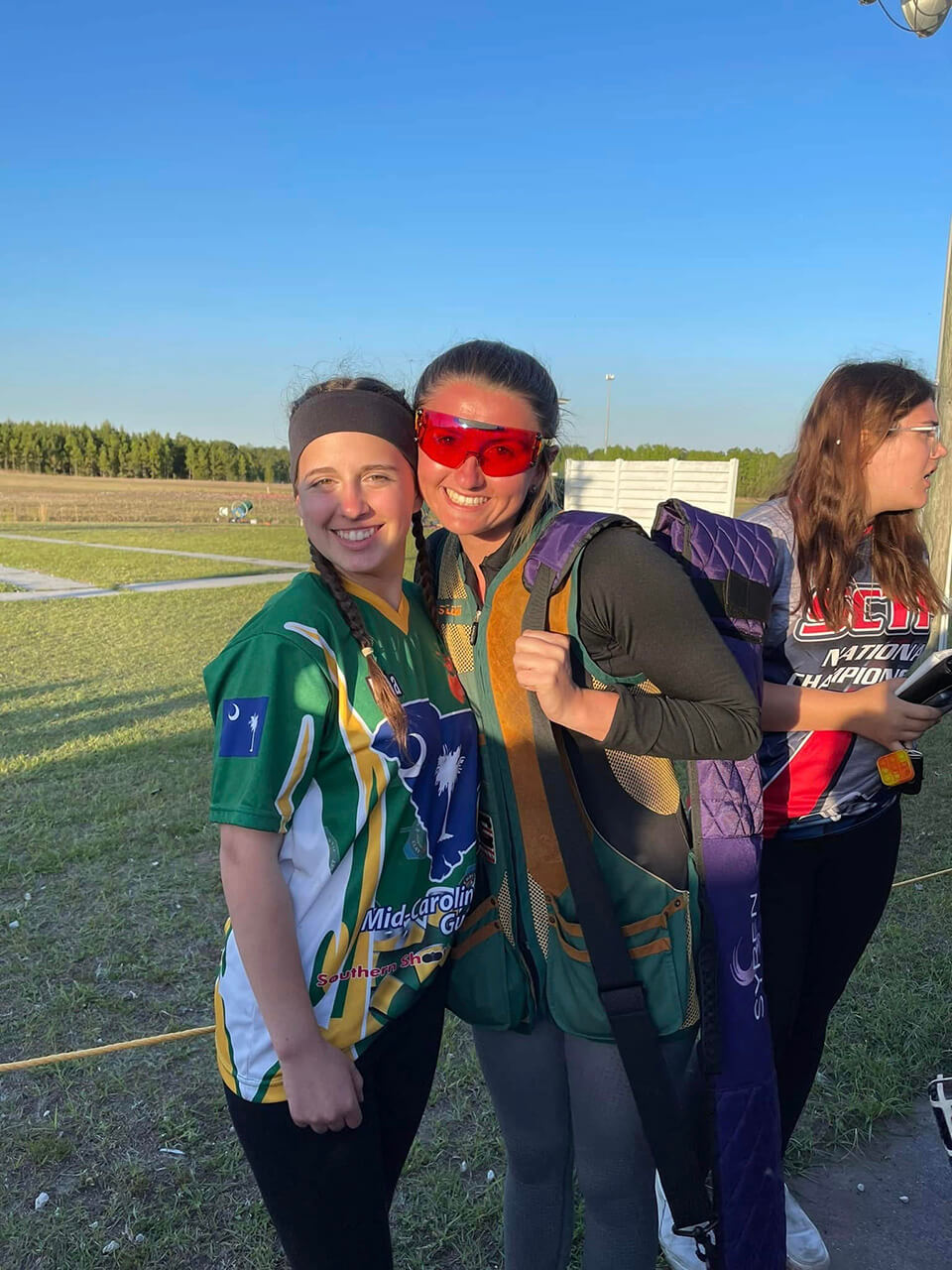
Competition teaches more than just marksmanship. What were some of the most valuable lessons you took away from competing at the collegiate level?
I’ve learned so much throughout the years I’ve had a shotgun in my hands. One of the most valuable lessons being how to protect your peace. There’s a lot that can get under your skin, especially when competing at a high level. Competition has the ability to point out all of your flaws, even ones you never knew you had. It’s hard to maintain a strong and peaceful mental space through that. Learning how to protect (or guard you could say) my peace has been huge. Another important lesson I learned, especially through my years as a collegiate athlete, was what I was willing to sacrifice to get to where I wanted to be. People don’t often talk about the side of shooting where you miss family events, graduations, fun parties and other things normal teenagers/young adults are doing. It’s hard to be away competing, but the commitment comes with some sacrifices. No matter what you do in life, you’ll have to make some sacrifices to get where you want to be.
The Next Chapter & Advice to Aspiring Young Athletes
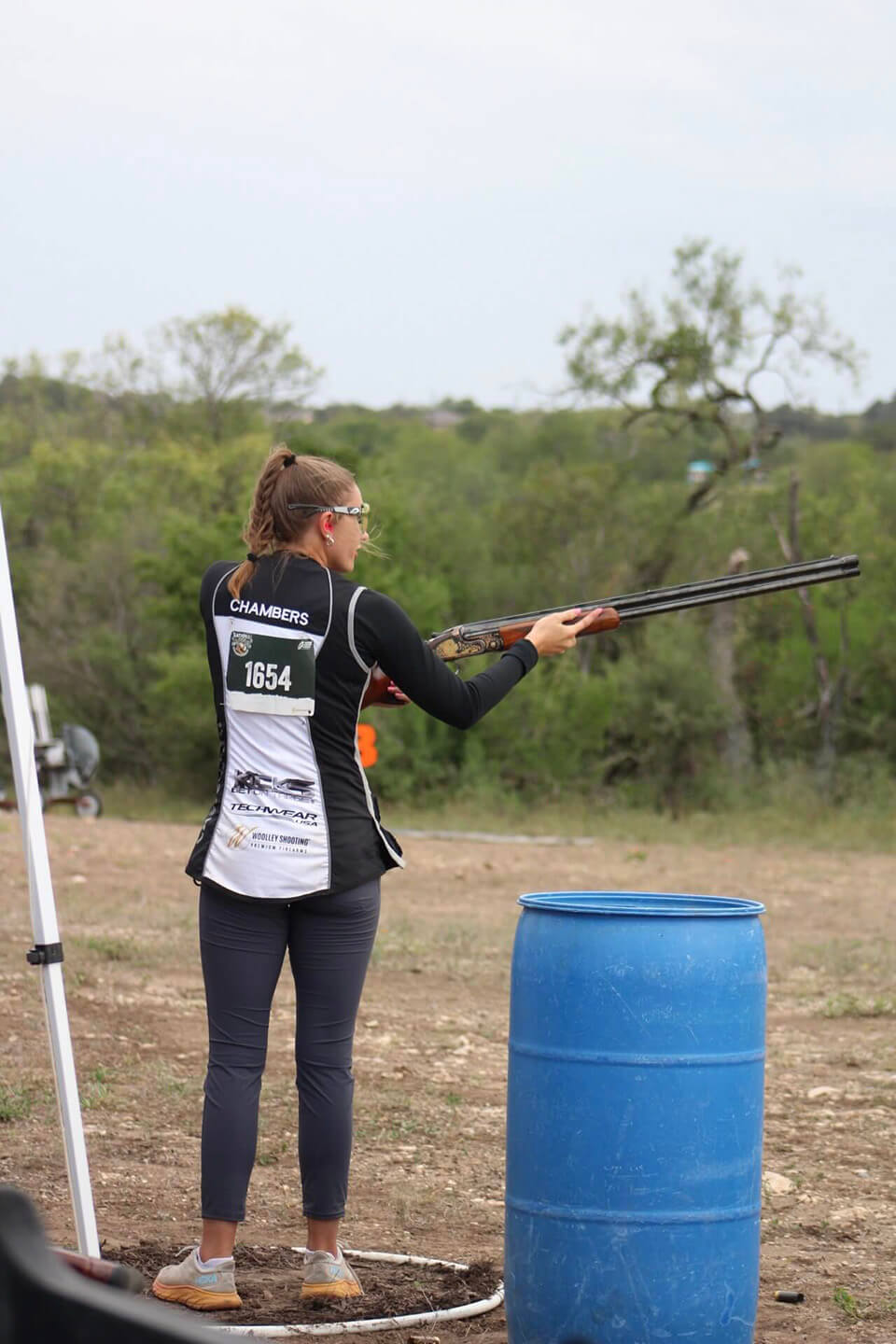
After college, life changes. What has your transition into the workforce been like, and how has it affected your participation in shooting sports?
It has been interesting, for sure. When I moved to online school, I moved to St. Augustine to work for a gun store, Woolley’s Shooting. After about 2 years, I moved back to Savannah and began teaching one-on-one. Competition and coaching have always been the root of my work. I always say when I travel to tournaments that, “Now it’s time to work.” I think my true love for the game comes out when I get to be on the course, meeting people and breaking targets. Every time I get to be out there, I’m reminded of why I fell in love with the game in the first place. Because my work has been in the shooting industry, it’s kept me really active in the game itself. Of course I’ve slowed down from being out there every weekend, but God willing, I’ll see you all on the course for the next 20 to life!
If you could give your younger self some advice, just as you were entering the world of collegiate shooting, what would it be? Something you know now, but wish you had known back then.
There’s a quote that says, “It’s not the mountain we conquer, but ourselves.” So many times, our success is summarized down to a list of accomplishments. Who won what, when they won it, how many times they won it. There is so much more to life, to me, to us shooters, than how long our accolades list is. At that time, and even now, it’s so easy to place your worth or determine your impact by how many trophies are sitting on the shelf. I have learned now that it’s not about how much you win, it’s about how you do so. Who you are, the way you carry yourself, and the way you treat others carries so much further than any win ever will. Who you are, who I am, has very little to do with breaking a target. There’s a lot of peace that comes when you are able to separate the game from who you are at your core. So I think my biggest piece of advice to young Abby would have been to find your worth in who you are, not what sport you’re competing in.
What advice would you offer to female athletes who are nearing graduation and unsure how to stay connected to the sport once college ends?
Life gets busy after graduation! It’s hard to stay in touch with a lot of people and things, not just the shooting sports. My best advice would be to be intentional with your time. There’s only so many hours in the week, so make sure you’re getting the best use out of them. For a while, I would be practicing during my hour lunch break of a 10-hour day giving lessons. Some days it meant leaving after work on Friday to shoot a Saturday/Sunday Main Event. As long as you’re intentional with how you spend your time, everything will fall into place exactly how it’s meant.
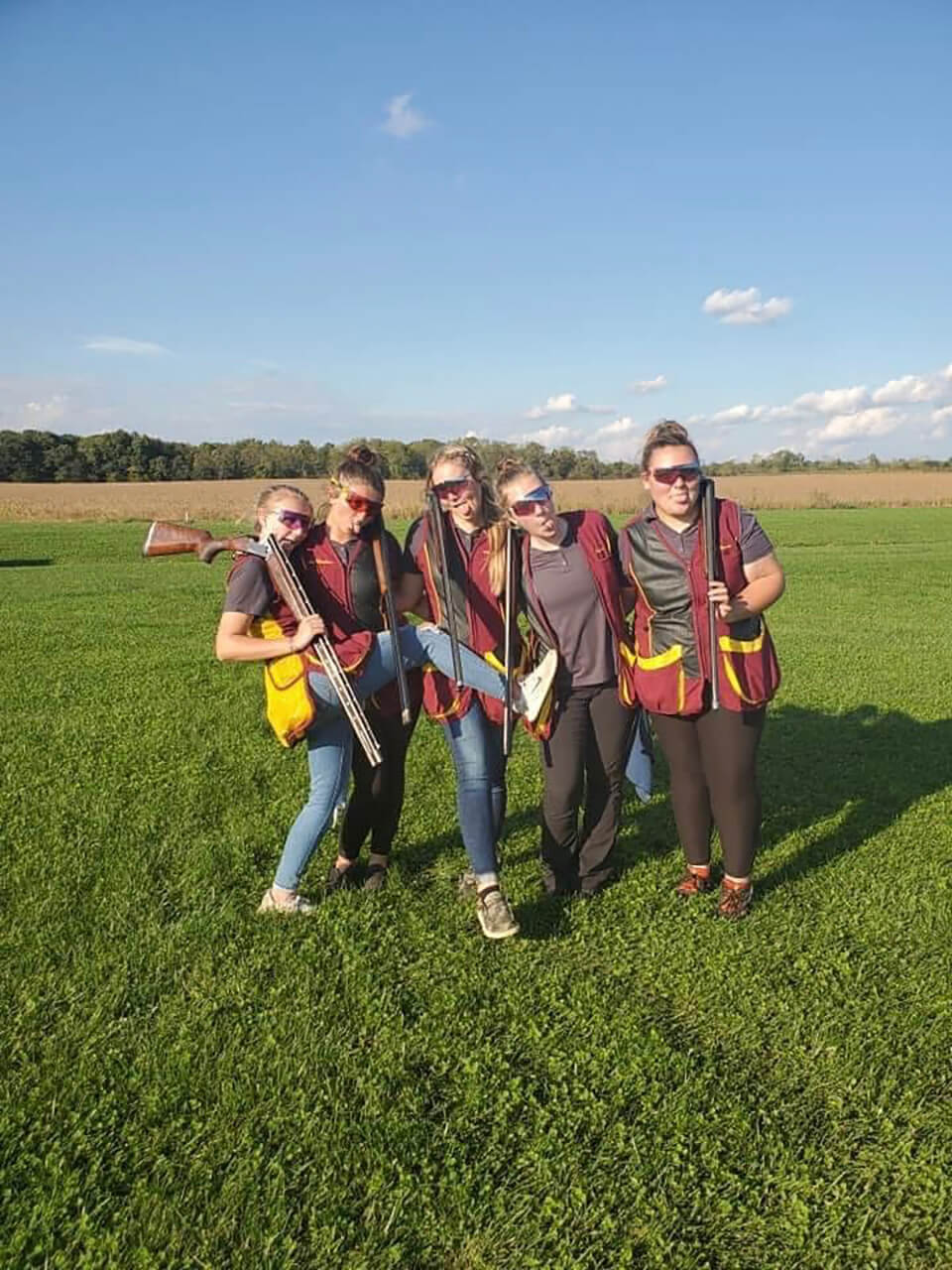
You’ve been both a student and a competitor. What do you think are the most important factors for young women to consider when choosing a school with a shooting program?
In my opinion, the biggest factor in choosing a college with a shooting program would be to consider their programs of study and to trust your gut. I would make sure that the schools you’re considering have programs that you’re interested in. I would also make sure to tour the colleges you’re thinking about attending and making sure you talk to other shooters in the program. Make sure you’re not only going to the shooting program you want to be a part of, but also that you’re getting the education you want.
In closing, as someone who’s been there and done that, what would you say to high school shooters wondering if it’s worth chasing a collegiate shooting opportunity?
I would say that every dream, both big and small, is worth chasing. Even if the shotgun sports aren’t something you end up having a career in, I promise the memories you make during this time in your life will last a lifetime. The only limit you have is the one your place on yourself, so dream big and work hard.
Abby’s journey reminds us that while college may be a chapter, it’s not the end of the book. From the friendships forged on the range to the personal growth that comes from balancing academics, competition and real-world transitions, her experience shows just how much shooting sports can shape a person – long after the final round is fired. For young women navigating the world of collegiate shooting or preparing to take their next step beyond it, Abby’s words are a valuable reminder: the skills, confidence, and community you build in this sport stay with you wherever life takes you.

Be sure to read and recap the previous two articles in this three-part series featuring: Emily Miller, and Kennison Thomason.
If you would like to learn more about the various shooting programs, we covered a number of them from youth through college, and even Olympics in a previous article titled “How To Get Started In Youth Shotgun Sports”.
To learn more about Syren shotguns for Women, and how they can help you achieve your goals of competing at any level, explore the many options available here.
Enjoying this post? Read more just like it on our Syren Savvy Blog HERE.
*This article was originally posted in our column on WomensOutdoorNews.com written by Syren USA and edited by WON Publisher/Editor Barbara Baird.


